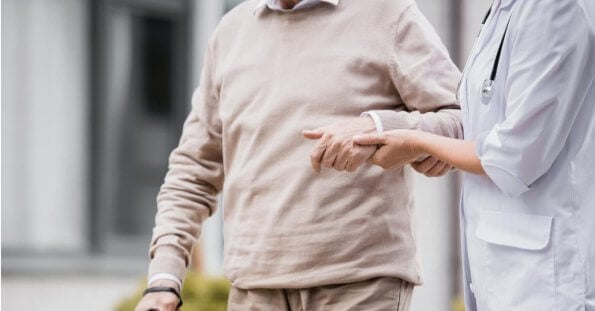What Is Omicron BA. 2. 12?
Omicron is a virus that causes respiratory illnesses like flu-like symptoms, coughing, fever, and shortness of breath. The virus was discovered in China in December 2019 and since then, cases have been reported in several countries including the United States, France, Germany, Japan, South Korea, Singapore, Taiwan, Thailand, Vietnam, Australia, Canada, Hong Kong, Macau, Malaysia, Nepal, New Zealand, Pakistan, Russia, Saudi Arabia, Spain, Sri Lanka, Switzerland, Turkey, Ukraine, and the United Kingdom.
The case is a 52-year-old Finnish female who arrived in the country from Finland on April 2. She was not required to undergo routine isolation at a quarantine facility since she was fully vaccinated and arrived asymptomatic.
Source: (rappler.com)
When a patient gets infected with Omicron, he or she may experience mild to moderate illness. However, some patients may develop serious complications such as pneumonia, acute respiratory distress syndrome, sepsis, shock, multi-organ failure, and death.
In addition to the above-mentioned symptoms, Omicron also affects the nervous system. Patients may experience headaches, dizziness, confusion, seizures, coma, and even paralysis.
Scientists are still trying to figure out what makes this new strain of coronavirus different from other strains. There is some evidence that it may be more contagious than previous strains. At the moment, scientists think that it doesn’t make people sicker. BA.2.12 is a virus that was detected recently in Malaysia. It is not yet characterized as a new variant of concern or of interest. The DOH assures the public there is nothing to worry about and is monitoring cases.
The DOH appealed to the public to strictly adhere to the health protocols and get vaccines to protect themselves against the COVID-19 virus, regardless if it is new or already circulating. The public can avoid all variants of the virus by wearing masks, isolating when sick, double-upping protection through vaccination and boosters, and ensuring good airflow.
Do vaccines still work for BA.2?
Vaccines will help protect people who get COVID-19, but they won’t stop everyone from getting sick. People who already had coronavirus antibodies before getting COVID-19 were less likely to be hospitalized or need intensive care. In Denmark, most people who got COVID-19 had mild symptoms. Only about 1 percent needed intensive care. Most people who caught COVID-19 again after being infected once recovered. A booster dose of vaccine is needed after two shots to protect against all three strains of Omicron.
CDC recommends that people over 50 get a fourth vaccine dose. People who have cancer or other health problems should also get extra vaccines. Vaccine boosters lower the chance of getting sick from COVID-19. Unvaccinated people infected with the variant BA.2 are more likely to develop severe symptoms than those infected with other Omicron variants.
How to Keep Yourself Safe From Omicron
COVID-19 is spreading rapidly around the world. The virus is highly contagious and spreads through droplets, which travel up to 6 feet (1.8 meters).
Omicron is a strain of coronavirus that causes respiratory illnesses such as colds and flu. It is similar to SARS, MERS, and the common cold.
While the majority of people infected with Omicron do not develop symptoms, those who do can become seriously ill and even die.
There are two ways to protect against Omicron: vaccination and immunity. Vaccination is recommended for anyone who hasn’t been previously exposed to Omicron. Immunity comes from having had contact with someone who was exposed to Omicron and developed antibodies.
Vaccines are available for Omicron, but they aren’t widely used because of concerns surrounding side effects and safety.
In addition to getting vaccinated, health officials recommend staying home when sick and avoiding close contact with people who are coughing or sneezing.
People who haven’t been vaccinated should also avoid public places where large numbers of people congregate. This includes shopping malls, movie theaters, restaurants, bars, and schools.
It’s important to note that while Omicron is spread through droplets, there is no evidence that it can be transmitted through food or water.
Conclusion
In conclusion, I hope everyone stays safe during this crazy time. We’re still in the early stages of this pandemic, but we have seen many cases of coronavirus around the world. As long as we continue to follow the guidelines put forth by public health officials, we should be able to limit the spread of the virus. However, if you see someone coughing or sneezing, please stay away from them. And if you feel sick, please call your doctor before going into any medical facility. Stay home, stay safe, and stay indoors!






































